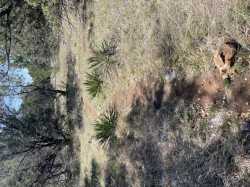>>2333717Big items that you will need for every trip:
-tent (just start with some basic double wall dome tent)
-sleeping bag (with temperature rating appropriate to the season and climate)
-sleeping pad designed for camping (important to insulate your body from the ground)
-pillow if you are not a sociopath
-food
-stove to cook your food (don't forget matches or a lighter)
-water
-water filtration or chemical treatment to procure more water when what you brought runs out
-flashlight or headlamp
-backpack to fit it all, if you intend to hike to your campsite
-toilet paper
-rain gear
-depending on where you are, you really should figure out how to hang your food with some paracord so bears don't break into your tent and maul you in your sleep
There are a number of other things people will call "essentials," like a map, first aid kit, fire starting kit, maybe sunscreen, a knife, maybe even a book, but if you are just following a trail for half a mile and pitching your tent along the trail for your first ever camping trip, you don't really need that much more than the essentials. After a few trips, you'll figure out how much food and water you are consuming per day on a camping trip, what gear you don't need an what gear you do need. Do a few trips before spending a bunch of money on equipment.
>>2333810Honestly, some cotton blend sweatshirts are probably fine, but the best advice is to just bring synthetic or synthetic-wool fibers with you into the outdoors. There are too many reasons to avoid cotton to count.
-Cotton is a fiber that a plant grows to spread its seeds. It is not intended to insulate anything in nature, unlike wool.
-Cotton fibers absorb water and hold it for a long time. Cotton dries very, very slowly.
-Cotton fibers lose their structure when wet (the reason cotton socks cause blisters like crazy but synthetic and wool socks do not)
-Cotton fibers lose all of their ability to insulate when wet.

